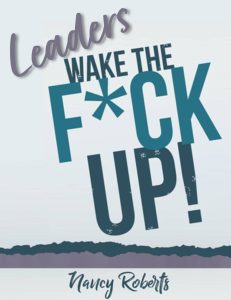I know, I know. We like to think of ourselves as rational human beings.
However, it turns out that MOST often we aren’t responding to the “facts” of the matter.
It just so happens that there is something that happens between the event (which IS usually fact-based) and our response – and it happens so blindingly fast – we don’t even know it’s happened.

To make sense of events, we tell ourselves a story. Sometimes these stories are accurate, sometimes they are not.
The problem is, unfortunately, these stories are often negative. And it’s these negative and untrue stories that create our response and determine our outcome.
Consider this example. An SVP of an insurance company called me before an employee a performance review that he was dreading.
When I asked him to tell me about this employee, he said things like, “She is lazy and overly comfortable in her position.”
I then asked him to come up with specific behaviors that he had observed this employee taking (or not taking).
He struggled at first but then remembered a specific incident when she finished one project mid-day but didn’t come and tell him she was done until the end of the day. (Event)
He assumed it was because she didn’t want to be handed a new assignment for the day. (Story)
When I asked him to separate the facts from his opinion, he could see that the only fact of the matter was that she had finished mid-day (recorded on timesheets) but didn’t tell him until the end of the day.
So I asked him, “Why would an otherwise good, competent employee do this? If we give her the benefit of the doubt, what other reasons could there be?”
The Manager admitted that he wouldn’t know until he asked. And that is what he did. Turns out in this instance, this employee took the opportunity in the afternoon to catch up on some paperwork that had been past due. Hardly the actions of a “lazy” employee.
So what is the alternative to letting our emotions get the best of us when it comes to dealing with conflict?
Stick to the facts. Facts are irrefutable behaviors that you can see or hear. Anything else is just added opinion or assumptions.
FACTS
–> Observable Behavior (Behavior you can witness – see or hear)
–> Verifiable Data (like a fax you received or a receipt from a store)
–> Events that most people would readily agree if observed (i.e., if 10 people saw a car accident, the details may vary but most people would agree that two cars collided)
STORIES
–> Conclusions and Assumptions
–> Judgment (good or bad conclusions added to the facts)
–> Attribute Motives (The Fundamental Attribution Error is when we see someone do something and we assume the reason for their behavior. “She was late because she is inconsiderate.”
However if the situation is reversed, and we are the one to be late, we give our self a free pass by blaming outside circumstances “I was late because there was an accident and traffic was backed up.”)
Usually the facts of the situation – without all of our stories and opinions – are much less likely to trigger our emotions.
By discussing “JUST the facts” with someone, in this case with your employee, you remain calm and allow her to share her version of events with you.
If you get all caught up in your stories, your emotions will take over and whether you tend to go towards “silence” or “violence” you will likely make the situation worse.
~The DISC Wizard





